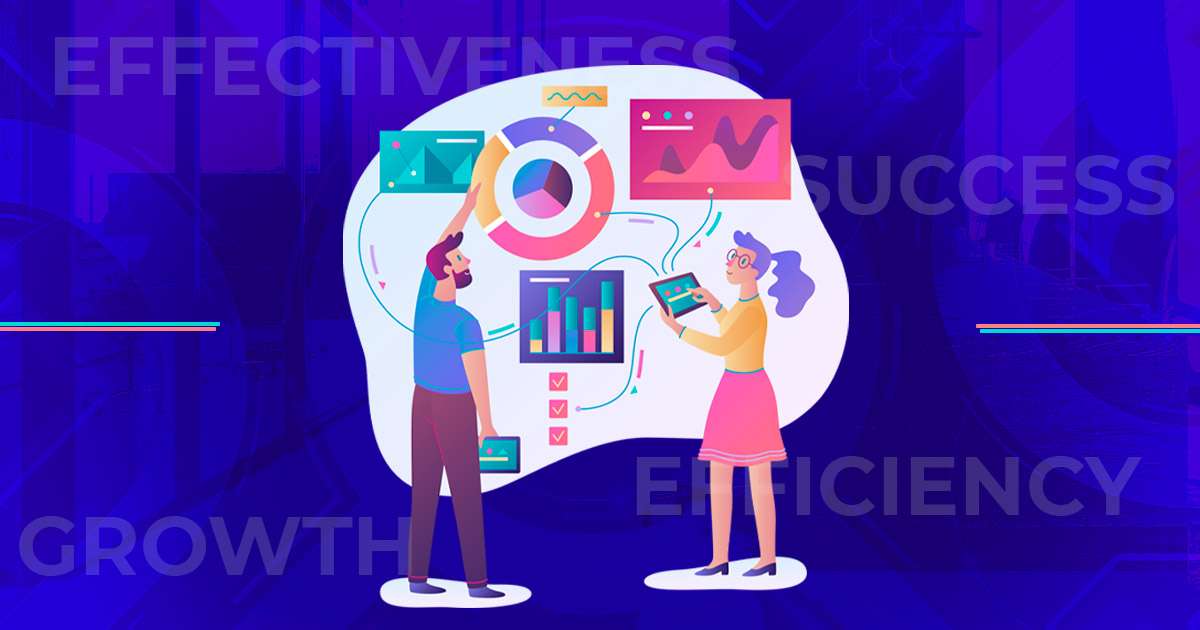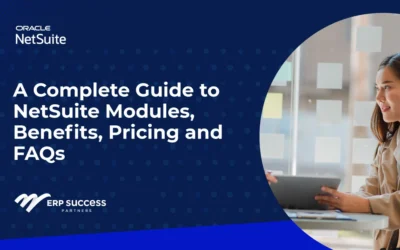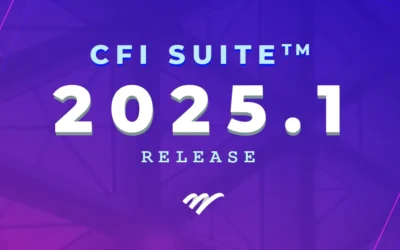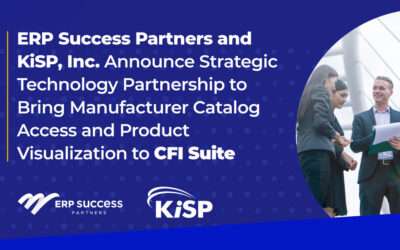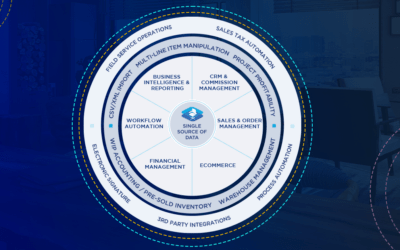In our previous article , we examined how the economic recession over the past three years has affected contract furniture organizations’ investment in new technology solutions like Enterprise Resource Planning (ERP) systems. Despite financial challenges, many businesses recognized the strategic value of ERP systems such as CFI Suite and adjusted their approach to technology investments accordingly.
Why Invest in ERP Now?
Now, as the global economy begins to stabilize, it’s time to look ahead and explore how investing in ERP today can lay the foundation for future business growth, specifically in the North American Contract Furniture Industry.
1. Preparing for Economic Recovery
As the economy recovers, businesses in the contract furniture industry need to be agile and ready to capitalize on new opportunities. An ERP system provides the necessary tools to streamline operations, improve efficiency, and enhance decision-making capabilities. This agility is crucial for companies aiming to scale quickly and respond to changing market conditions.
2. Enhancing Operational Efficiency
ERP systems integrate various business processes, from finance and human resources to supply chain and customer relationship management. Through the effect og providing a unified view of operations, ERP systems help eliminate redundancies, reduce manual errors, and automate routine tasks. This operational efficiency translates into cost savings and improved productivity, allowing contract furniture businesses to do more with less – which is how CFI Suite contributes to our customers’ success.
3. Data-Driven Decision Making
In today’s data-centric world, having access to accurate, real-time information is paramount. ERP systems offer advanced analytics and reporting capabilities, enabling businesses to make informed decisions based on comprehensive data insights. This data-driven approach helps identify growth opportunities, optimize resource allocation, and improve overall business performance.
4. Supporting Digital Transformation
Digital transformation is no longer a luxury but a necessity for businesses seeking long-term success. ERP systems are at the heart of digital transformation initiatives, providing the technological backbone for integrating new digital tools and processes. Investing in ERP now ensures that contract furniture businesses are well-equipped to embrace emerging technologies and remain competitive in a rapidly evolving market.
Key Benefits of ERP for Future Growth
Now, let’s take a look of the long-term benefits cloud based ERPs such as CFI Suite, powered by NetSuite, can help contract furniture organizations to drive business growth, whether they are startups, mid-size or enterprise-level companies.
1. Scalability and Flexibility
Modern ERP systems are designed to grow with your business. Whether you’re a small startup or a large enterprise, ERP solutions offer scalability to accommodate increased transaction volumes, additional users, and expanding operations. This flexibility ensures that your ERP system remains relevant and effective as your business evolves.
2. Enhanced Customer Experience
In an era where customer experience is a key differentiator, ERP systems play a crucial role in delivering personalized and seamless customer interactions. The integration of customer data across all touchpoints in ERP systems enables businesses to provide consistent and tailored experiences, boosting customer satisfaction and loyalty.
3. Supply Chain Optimization
Efficient supply chain management is critical for business growth, especially in the contract furniture industry. ERP systems offer end-to-end visibility and control over supply chain processes, from procurement and inventory management to distribution and logistics. This optimization leads to reduced costs, improved delivery times, and enhanced supplier relationships.
4. Regulatory Compliance and Risk Management
Staying compliant with industry regulations and managing risks are essential for sustainable growth. ERP systems help businesses maintain compliance by automating reporting processes and ensuring adherence to regulatory standards. Additionally, robust risk management features within ERP systems help identify and mitigate potential threats, safeguarding the business against unforeseen disruptions.
Case Studies: ERP Driving Growth in the Contract Furniture Indsutry
Let’s kick things up a notch and go through real examples on how CFI Suite – the ERP with Contract Furniture functionalities, has radically changed the business landscape of some customers:
1. King Business Interiors
King Business Interiors, a provider of commercial furniture and flooring solutions, sought to improve project management and financial operations to enhance overall business efficiency and support growth. ERP Success Partners collaborated with King Business Interiors to implement NetSuite & CFI Suite, replacing outdated systems. The approach involved a detailed analysis of current workflows, custom configuration of NetSuite and CFI Suite to meet specific needs, and thorough training to ensure smooth adoption by the team. The solution resulted in streamlined operations with enhanced efficiency by automating key processes and reducing manual tasks, improved real-time data access and reporting for better visibility into financial and project data, and enhanced project management that improved coordination and tracking of projects, leading to increased productivity and client satisfaction.
2. PeopleSpace
PeopleSpace, a leading contract furniture provider of workspace solutions, needed to streamline their operations and improve project management to enhance overall efficiency and support business growth. ERP Success Partners collaborated with PeopleSpace to implement NetSuite and CFI Suite, replacing multiple disparate systems. The implementation involved a comprehensive assessment of PeopleSpace’s existing workflows and requirements, addressing specific needs such as project management, financial consolidation, and real-time reporting. The team provided extensive training to ensure smooth adoption and effective use of the new system. The solution resulted in streamlined multinational operations, improved real-time data access and reporting for better visibility into financial and operational data, improved scalability for future acquisitions and growth, enhanced oversight and control over project timelines, budgets, and resources, and automated key processes, minimizing manual intervention and reducing the risk of errors.
3. Officeworks Inc.
Officeworks, a leading Teknion dealer, faced the challenge of unifying its business systems to streamline operations and support growth across multiple locations. To address this, Officeworks transitioned from ECI TeamDesign and CORE to the cloud-based CFI Suite powered by NetSuite. This implementation was customized to meet specific industry and company needs, ensuring scalability and integration capabilities. The solution provided a unified platform, eliminating the difficulties of managing multiple systems, and offered scalability and flexibility to adjust preferences, workflows, and business processes. Additionally, it featured integration capabilities with a marketplace of over 500 plug-and-play apps, real-time business visibility to enhance collaboration and decision-making, and advanced reporting capabilities for valuable insights into sales performance, project profitability, and other key metrics.
Strategic Steps for Implementing ERP
The core foundation of an ERP lies in a successful implementation. On this note, it is not only the solution provider’s job but also the end-user’s role and responsibilities to ensure all business processes are mapped out and analyzed before heading through the implementation phase. Let’s take a concise look of what is involved:
1. Assessment of Business Needs
Before investing in an ERP system, conduct a thorough assessment of your business needs and goals. Identify the key areas where an ERP system can add value and address specific challenges in the contract furniture industry.
2. Choosing the Right ERP Solution
Evaluate different ERP vendors and solutions based on your business requirements, budget, and scalability needs. Consider factors such as deployment options (cloud vs. on-premises), customization capabilities, and vendor support.
3. Plan for Implementation
Develop a detailed implementation plan that includes timelines, resource allocation, and milestones. Ensure that all stakeholders are involved in the planning process and understand their roles and responsibilities.
4. Focus on Change Management
Implementing an ERP system often requires significant changes to existing processes and workflows. Invest in change management strategies, including training programs and communication plans, to ensure a smooth transition and user adoption.
5. Monitor and Optimize
Once the ERP system is implemented, continuously monitor its performance and gather feedback from users. Regularly update and optimize the system to ensure it continues to meet your evolving business needs.
6. Don’t Forget Account Support
Once implemented and running, your ERP account would need Support for you to make the most out of your syste. While it may look like an extra expense, it looks more like an investment for your company, so that you are able to focus on more strategic initiatives while your vendor takes care of managing and improving your account, tailored to your evolving business needs.
Lead with Vision, Navigate with Precision
Investing in an ERP system today is a strategic move that can position your contract furniture business for future growth. By enhancing operational efficiency, enabling data-driven decision-making, supporting digital transformation, and providing scalability, ERP systems offer the tools needed to thrive in a competitive market.
As the economy recovers, businesses that prioritize ERP investments will be better equipped to seize new opportunities, improve customer experiences, and achieve long-term success. The time to invest in ERP is now, paving the way for a brighter and more prosperous future in the North American contract furniture industry.
